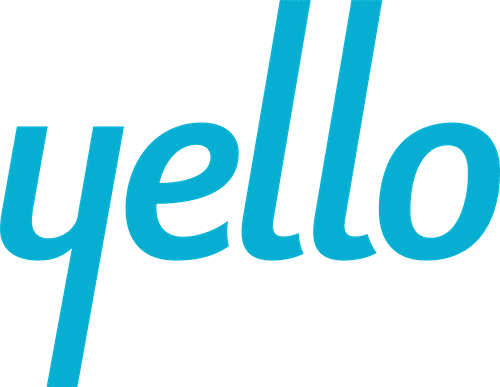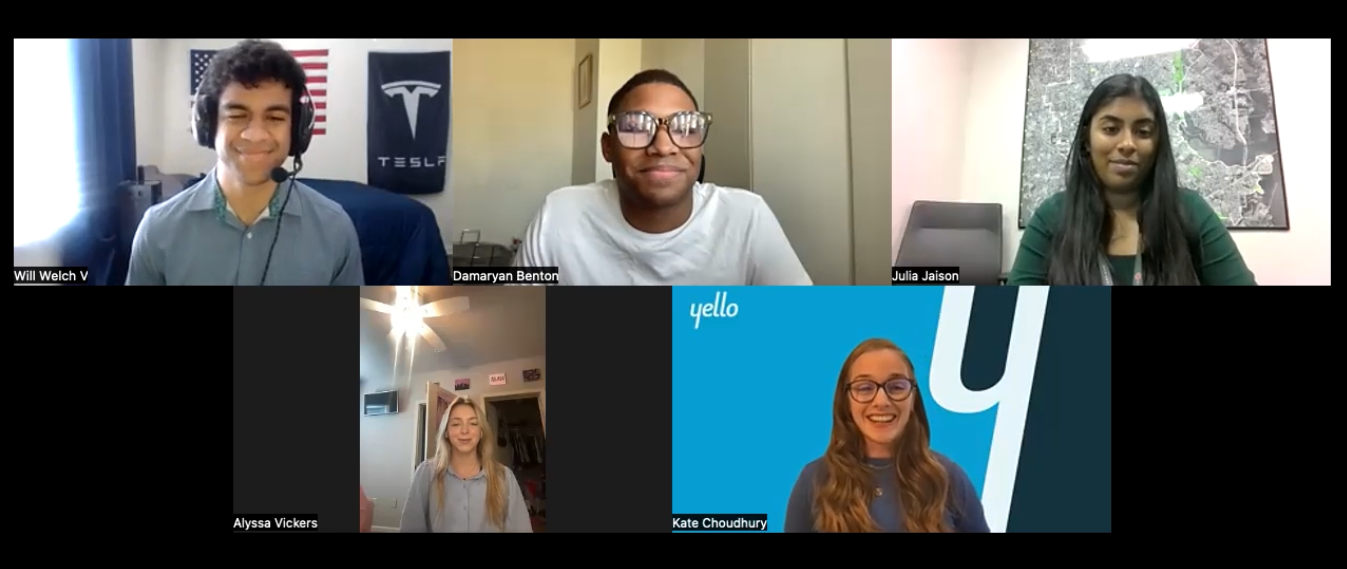These observations led us to ask questions like: What do candidates value the most during their job search? What helps a company stand out? How do candidates like to engage with employers pre and post offer?
Kate Choudhury spoke with four of Wayup’s Top Interns of 2023, ranging from a high school senior to college upperclassmen: Will Welch, Damaryan Benton, Alyssa Vickers, and Julia Jaison to get their thoughts and opinions around the job searching process.
Each of these ambitious students have secured internships across separate industries with a different area of focus. Their firsthand experiences spotlight key areas where employers can fine-tune their recruitment and internship programs to better attract, support, and retain top prospects.
Here’s 5 key takeaways from the panel for recruiters looking to improve their early career hiring experience:
#1 – Don’t underestimate the value of transparency
Transparency throughout the recruitment and onboarding process helps candidates feel respected and sets proper expectations. Clearly outlining details like program duration, learning objectives, and project specifics upfront is key to establishing trust and helping the candidates feel comfortable.
Being proactive about communicating any hiring delays, as well as providing interview prep guides and tips, helps candidates know exactly what to expect throughout the application and interview process. As Damaryan shared, this level of understanding signals an investment in getting to know talent as people first, not just roles to fill, which resonates deeply.
#2 – Give candidates an authentic look at your company culture
While polished company websites and standalone marketing materials have their place, they rarely convey the day-to-day reality of what it’s like to work at an organization. Encouraging current employees to create and share relatable, behind-the-scenes content offers genuine glimpses into culture that makes candidates feel like they could belong there. As Will emphasized from his experience, these inside looks go a long way in humanizing an employer brand.
This also means humanizing the hiring process. Will further emphasized how “it’s great to be able to actually have a talk with people rather than just texting with people.” This shows the importance of building a genuine human connection with each candidate and the value of personal conversations to foster deeper relationships.
Julia also mentioned how it is important to have a direct line of communication throughout the hiring process. Having someone candidates can text directly during the hiring process is a preferred and effective way to keep early talent candidates engaged.
#3 – Offer a flexible work environment
Offering remote and hybrid opportunities has become table stakes for attracting Gen Z talent, with even more candidates expecting this as the norm. However, unclear structure around expectations for things like schedules, resources, and community engagement risks deterring interested candidates.
Being transparent by thoroughly outlining what typical availability requirements look like for on-site roles vs remote roles, detailing standard equipment and stipends provided to virtual interns, and explaining collaborative digital initiatives or study hall-type spaces for engagement makes assessing culture fit tangible. While individual preferences vary, arming prospects with detailed support offerings rather than vague hybrid/remote promises helps them determine if the opportunity aligns with their needs.
#4 – Refrain from lengthy assessments, at least early in the process
Lengthy pre-hire tests can overwhelm and derail passionate candidates. As Alyssa shared, video prompts where you “sit there and answer a question that pops up on the screen” don’t always allow candidates to convey their capabilities effectively. While beneficial for resume screening, leading with extensive projects without context risks frustrating qualified applicants.
Where possible, focus first round interviews more on competencies, strengths, and culture fit before introducing additional assessments. When an assessment is required, set proper expectations ahead of time to avoid surprising the candidate.
#5 – Work with career centers
From resume workshops to employer networking events, university career centers provide students an opportunity for invaluable professional growth guidance. Resume review sessions prepare students to confidently engage company representatives who visit campus, while career fairs allow face-time with relevant organizations in an efficient way. Employers able to showcase alumni who now work in full-time roles within their organization also helps juniors and seniors imagine their career trajectories post-graduation.
Final thoughts
Today’s early career candidates have high expectations and value employers who offer a modern and personal recruitment process. The actionable insights shared above on transparent communication, authentic branding, flexible policy clarity, streamlined hiring, and career development support spotlight areas of opportunity for employers. Employers responsive to the calls for improvement from this entrepreneurial generation will lead the future of talent attraction.



